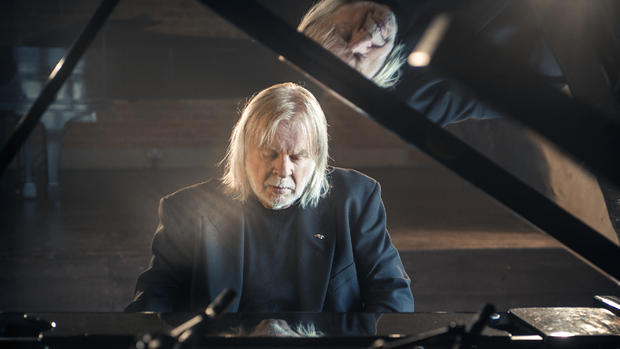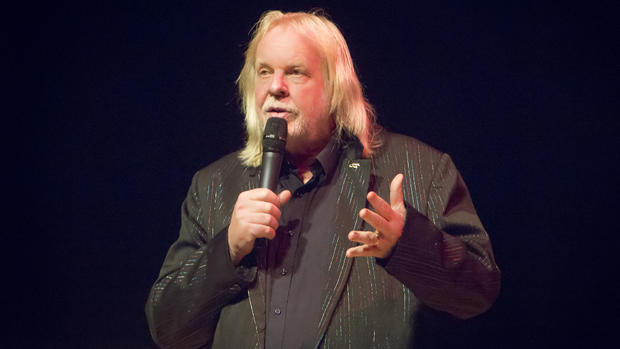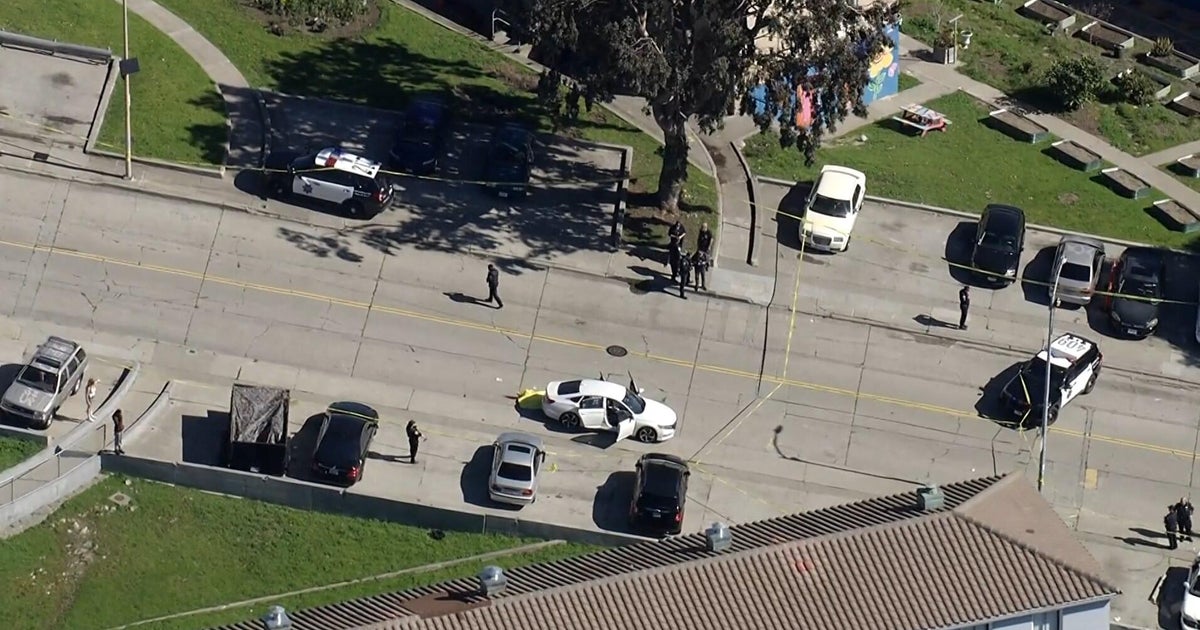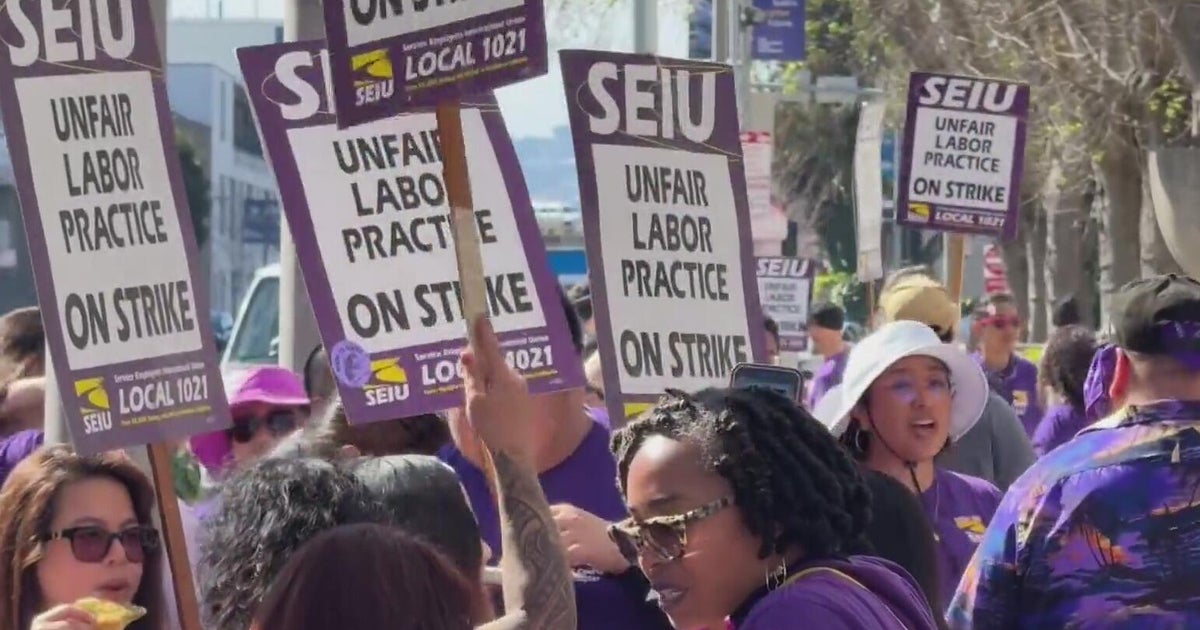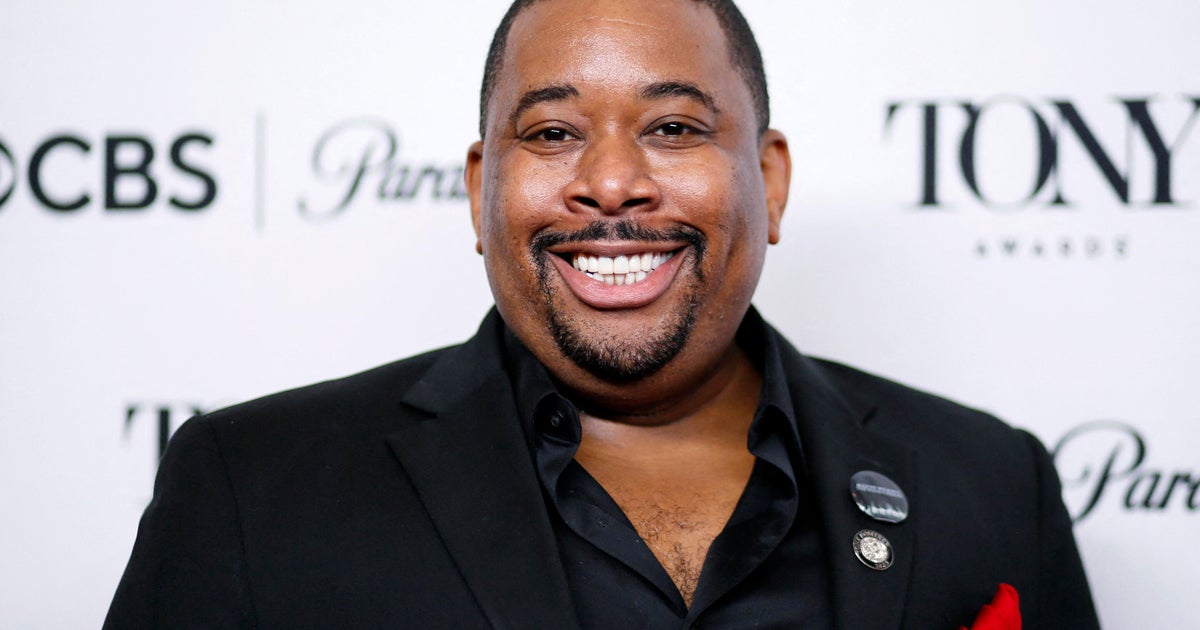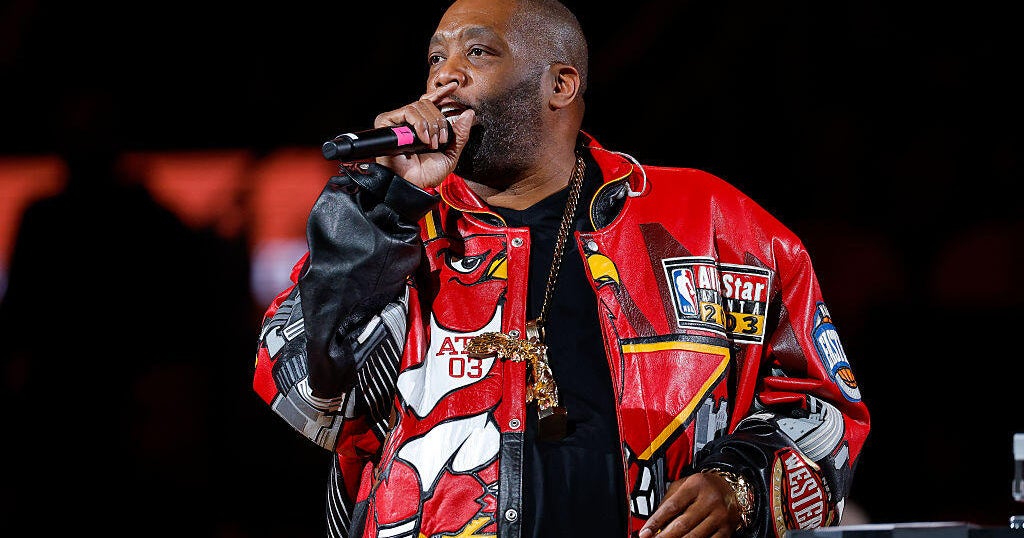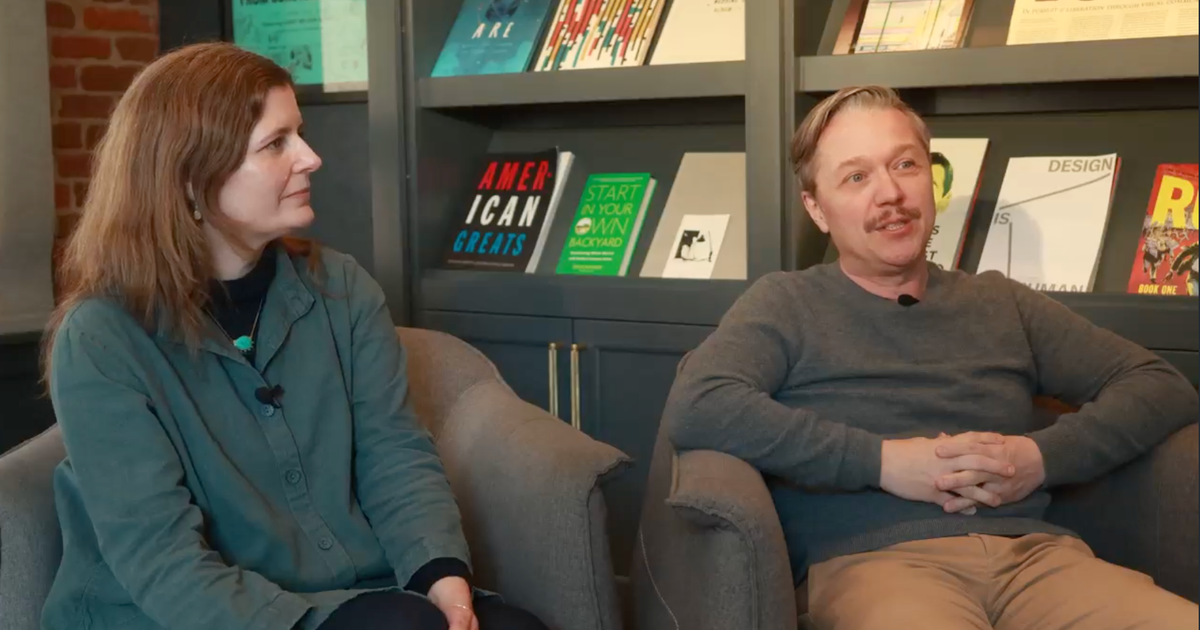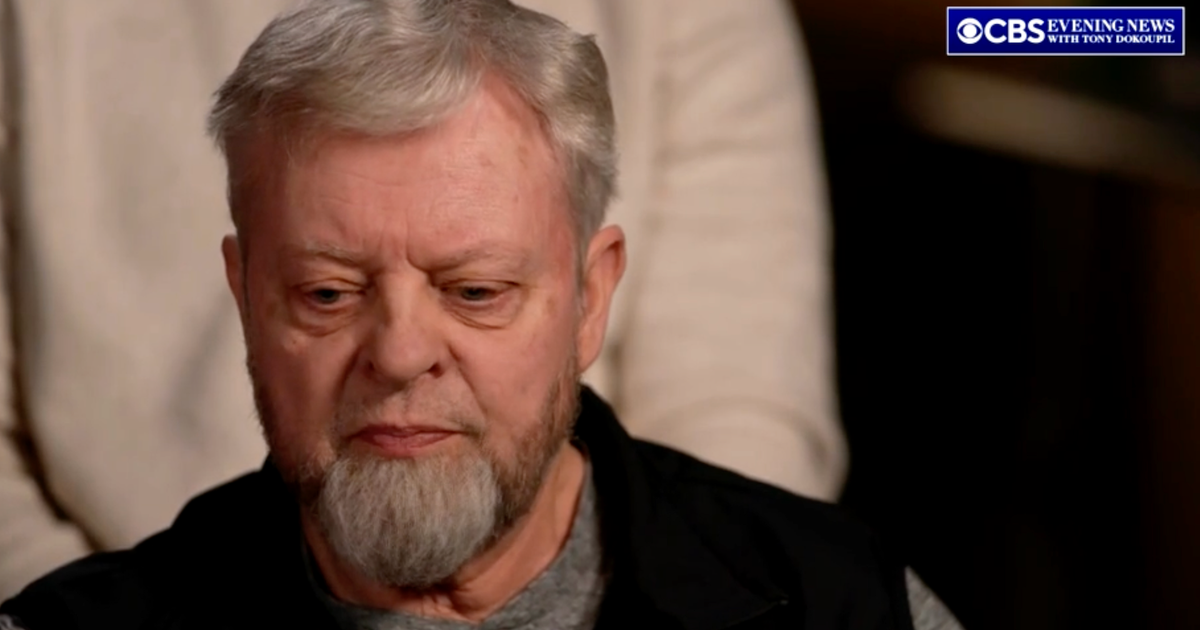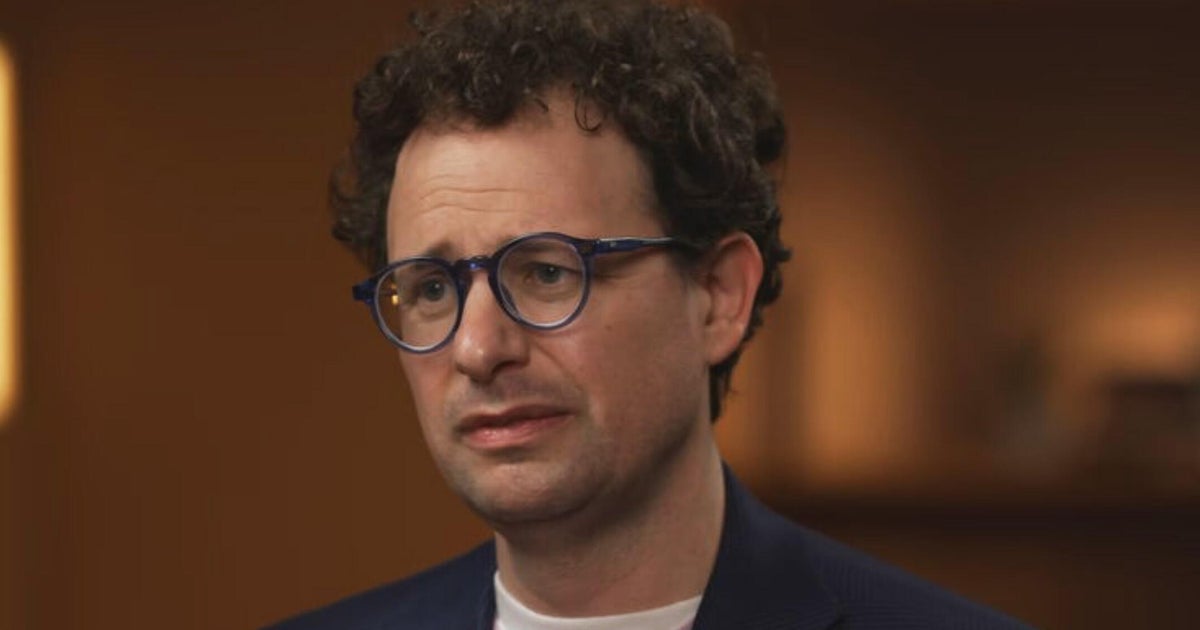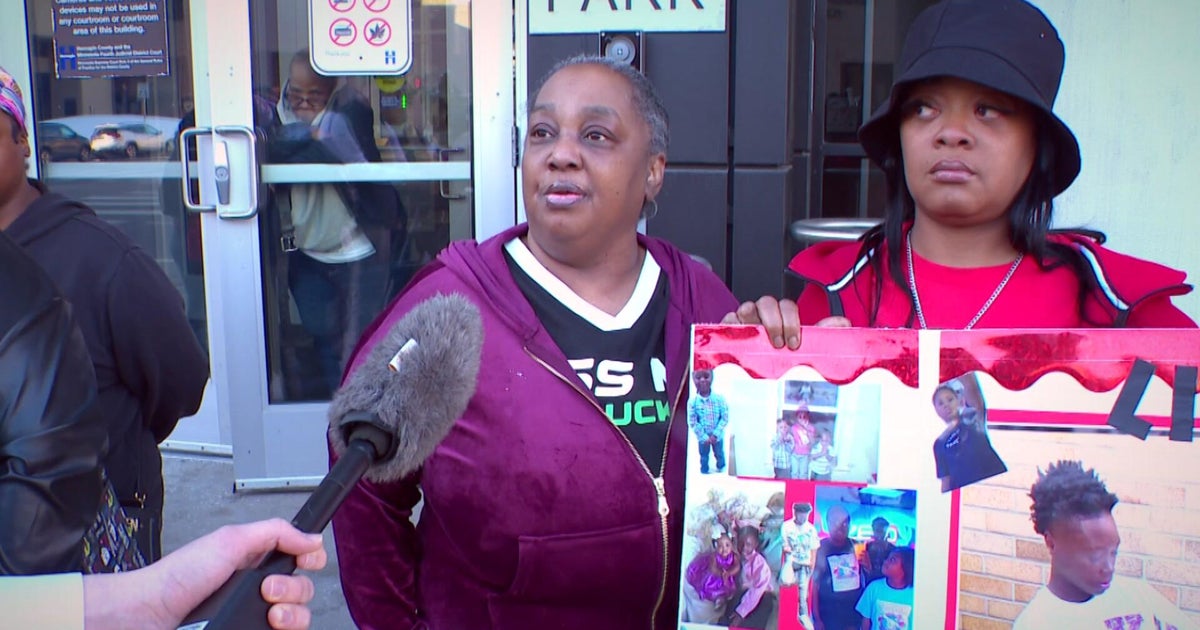CBS SF Talks to Progressive Rock Keyboard Giant Rick Wakeman
By Dave Pehling
SAN FRANCISCO (CBS SF) -- A virtuoso keyboard player best known for his work with prog-rock giants Yes and as a solo artist, Rick Wakeman has built an eclectic and varied career in music over the course of 50+ years.
A precocious boy who started taking piano lessons at age seven, Wakeman was remembered by his teacher as a talented student with good humor who excelled despite a lack of dedication to practicing. Before he was in his teens, Wakeman was winning awards and certificates in music competitions he was entered into by his mother. He eventually started exploring traditional jazz, blues and pop playing in a variety bands through his teens prior to entering the Royal College of Music just prior to turning 20.
His formal studies began to take a backseat to his musical career after the keyboardist played his first recording session with members of the Ike and Tina Turner band. He started skipping classes in favor of studio work and by 1969 had dropped out of the Royal College of Music altogether. He quickly built a reputation as a quick study, earning the nickname "One Take Wakeman" even when playing instruments he was unfamiliar with such as his contributions on mellotron for David Bowie's "Space Oddity." He would end up playing on several tracks for Bowie's second eponymous album, a collaboration that would continue over the next few years.
While he would make good money as his session credits grew, Wakeman found himself dissatisfied from a creative standpoint. He would join the British folk-rock group the Strawbs after playing on their 1970 album Dragonfly, playing as a full member of the band on the mostly live follow-up effort Just a Collection of Antiques and Curios that showcased his adroit organ playing. The one tune Wakeman received writing credit on -- "Temperament of Mind" -- was an extemporaneous piano improvisation that was singled out for it's creativity by fans and critics.
Wakeman continued to play organ, electric piano, harpsichord and Moog synthesizer with the Strawbs on their next studio album From the Witchwood in 1971, but took up more studio sessions to help pay his mortgage and bills, including work with Cat Stevens, Elton John, T. Rex and David Bowie on some of those artists' seminal recordings. His contributions on "Changes," "Oh! You Pretty Things" and "Life on Mars?" for Bowie's landmark Hunky Dory helped make that record one of the songwriter's early crowning achievements.
Having already decided to part ways with the Strawbs, Wakeman soon was faced with a difficult decision when he found himself to invited to join Bowie's backing band the Spiders of Mars -- the very group that would propel the singer to global fame -- and rising progressive rockers Yes, whose departing keyboard player Tony Kaye was resistant to using synthesizers. After rehearsing songs that Yes had written for their forthcoming album Fragile, the keyboardist decided joining that group was the best move for his career. Not long after, Wakeman was also signed to a solo deal with A&M Records.
Wakeman would be right. Fragile proved to be the band's breakout hit album powered by the FM radio hits "Roundabout" and "Heart of the Sunrise" that lifted Yes from cult act to international stars. The keyboardist's classically-influenced style played an enormous part in the band's sound on that album and the equally successful follow-up, Close to the Edge. Wakeman also released his solo debut, The Six Wives of Henry VII, an ambitious concept album that enlisted assistance from his former Strawbs bandmates and other members of Yes.
As successful as Yes had become, Wakeman began to feel at odds with the group as they started recording the sprawling double album Tales of Topographic Oceans in 1973. Inspired by a footnote in the book Autobiography of a Yogi, singer Jon Anderson and guitarist Steve Howe developed the record's obtuse concept and wrote most of the music, leaving Wakeman questioning the basic idea and quality of the songs. During the extensive tour to promote the album, the keyboardist told the band he would be departing once it was completed.
Wakeman would shift his focus to his solo career, releasing the album Journey to the Centre of the Earth based on the Jules Verne science fiction novel that featured a full choir and orchestra. A&M label executives were resistant to releasing the record, but it would grow to be an even bigger hit than Wakeman's first album. The keyboard player would put together his English Rock Ensemble to tour that album and subsequent efforts The Myths and Legends of King Arthur and the Knights of the Round Table, the soundtrack to the film Lisztomania made by Tommy director Ken Russell and his 1976 album No Earthly Connection.
The same year, Wakeman met with members of Yes and was convinced to rejoin the band for the recording of their album Going For the One. The reunion would be short lived, ending after the release of Tormato, one of the most critically panned records of the band's career.
Wakeman would spend most of the '80s working on solo albums and soundtracks, only returning to collaboration to join the amalgamation of early Yes members Anderson Bruford Wakeman Howe late in the decade to record and tour arenas with significant success before that group and bassist Chris Squire's version of Yes would come together to form an expanded band that recorded the album Union.
Wakeman would again depart the group in 1992, but has regularly returned to perform with Yes or members of Yes (most recently as part of ARW with singer Anderson and '80s-era guitarist Trevor Rabin in 2016) when not working on solo career. Two years ago, he appeared at the band's induction into the Rock and Roll Hall of Fame, offering up one of the most ribald and entertaining acceptance speeches in the history of the institution.
Wakeman's "Grumpy Old Rock Star Tour" in 2019 marked his first solo trip through the U.S. in 13 years and included a stop at the Castro Theatre in San Francisco. His latest tour will feature the musician taking the stage at the Palace of Fine Arts, telling stories about his illustrious career and delivering solo piano renditions of the many classic songs he had a hand in creating as well as tunes that inspired him.
Wakeman recently spoke with CBS SF about the challenges a touring musician faces in the age of COVID and some of the more interesting detours of his solo career ahead of his rescheduled "Even Grumpier Old Rock Star Tour" coming back to the Bay Area on Thursday, Feb. 24.
CBS SF: I saw your last San Francisco performance at the Castro Theatre. I hadn't seen one of the "Grumpy Old Rock Star" shows before and it was totally spellbinding and hilarious...
Rick Wakeman: The Castro was great. It had one of the most interesting dressing room areas I've ever seen.
CBS SF: As more of a traditional movie house, I'm guessing they might have to slap the space together as far as accommodations for performers.
Rick Wakeman: To be perfectly honest with you, I don't care. As long as there's a stage and a piano and people there, that's fine. But a lot of places that have become sort of venues, one of the last things that seems to be ever thought about is dressing rooms. In fact, it's not just America, I can tell you. There's places I know of in England, one place in particular where they built a beautiful new theater by the sea.
When it was opened by the local mayor -- big place, could hold a couple thousand people -- they invited a load of actors along to be part of the opening. One of the actors is actually a friend of mine, he said to the people running the theater, "Just out of interest, who designed this theater?" And they said, "Well, it was designed by the council here, because we didn't want to spend ridiculous monies on theatrical architects." He said, "Well, I think it might have been a good idea." And they asked, "Why?" He said "Well, you haven't built any dressing rooms at all."
They built this huge theater and it backed up onto the seafront, so there was no way -- I mean, unless you built out into the sea -- there was no where to go, right? So eventually they had to buy buildings next door and build out to the side. I mean, I could write a book about places' backstage; it'd be great fun.
Rick Wakeman: It would have been played as people were coming into theater and all that as well.
CBS SF: Exactly. And at intermission. I think you only played the piano they had onstage at the show I saw, but was curious, did the organ come up when you were the Castro?
Rick Wakeman: I can't remember whether it came up or not, but I certainly would have. What I'm going to do is I'm going to get my tour manager to check, because if it's working and I can use it and get there early to spend some time with it, then I would love to play it. The trouble is sometimes you arrive someplace to play and they go, "Oh, we've got an organ!" And you're onstage in 15 minutes. And you're like, "Well, I can't really do much now." But yeah, I'd love to do that. I really would.
CBS SF: To get into the questions I had, I know that the pandemic has really wreaked havoc on the touring industry for musicians and presented a lot of challenges. As someone who's as active as you are on the road, touring on your own and also performing live with a variety of bands, how did you keep yourself busy during the shutdown? Did you look into streaming performances as a way of sort of staying connected with fans and earning some of the income that you weren't able to make without touring?
Rick Wakeman: It was a thoroughly depressing time because, as I've said before, I'm a people person. I like playing in front of people, I get my energy from people. I get my happiness from from people. To have it taken away from me for pretty much two years was horrendous. The whole streaming concert thing, that's not an audience. You might as well stick a video on or go on to MTV and watch something.
It wouldn't work for me. I was offered the chances to do some and I said no. I did perform online at a couple of one-off things, like the Dublin Bowie Festival in Ireland. I did that because it was the anniversary of passing of David, who was such a great friend. So I did that; that was nice to do. But the whole streaming thing is not really for me.
And also, everybody I know who did it, when they were being really honest, they say it was very weird and they didn't really enjoy it because there was no interaction. And that's what you need. So it's been an unbelievably difficult time for me. To have that taken away was just awful.
CBS SF: From what I could tell the touring itinerary, it looks like you got through a portion of the planned dates that happened last fall, but then had to postpone the second half that included the San Francisco show. How hard was the decision to actually put the brakes on the tour when you were already in the midst of it? Logistically, that must have been a lot to deal with, even though it's a solo tour and you're playing on pianos that are at venues versus traveling with a lot of gear...
He said, "Rick, I think we need to split into two sections. I think that's the best way to go about it." That means we can do the East Coast pretty much, and then we'll look at doing the West Coast and the Midwest next year and try to plan it properly so it's as smooth as possible for both the audience and for you.
And I said, "Fine, whatever you think Larry. He put this together and I have the utmost faith in him. Larry has been a great friend for years and I trust him implicitly and he's never put a foot wrong for me in the decisions he's made. And I don't see any reason why this should be different. I accept what he says. It also means that we managed to do it so we can drive an awful lot rather than deal with the madness at airports at the moment. So I'm looking forward to it. To get onstage and be playing in front of people is great. And that's what I need. That's my buzz.
One of the videos I came across was the clip for "I'm So Straight. I'm a Weirdo," which seems like not only your stab at making new wave, but also a parody of it at the same time, which is puts it in interesting territory. Plus, it sort of delved into visual comedy and acting. I wanted to ask what recollections you had about that song and making the video?
Rick Wakeman: I love that video. I was living in Switzerland in 1979. The boss of the record company was a huge fan of the Buggles. And he said to me, "Can you write a track in that sort of vain?" I said, "Well, I can't write a Buggles track, but I can write whatever you want." He said, "I want something that we can release as a single."
And I thought, "OK, here we go." But I told him, "I've got this song. In fact, I've got these three pieces of fun music that I've written." One was called "I'm So Straight, I'm a Weirdo." At that time, all the great punk clothing and styles were coming out and it was the people who just dressed normally become the weirdos and become the strange ones. So it was an about face in what was going on.
And the other two pieces, one was called "Do You Believe in Fairies?" which I'd written for an English comedian who...I'm trying to remember his name. I can't think of it now And the other one which was only released in Switzerland and then it didn't last very long, which was called "Why Do the English Call Us Frogs?" Which was aimed at the French, of course. That was a fun thing to do.
But "I'm So Straight, I'm a Weirdo," I really like doing that. When I gave it to them, they absolutely loved it. They said, "We want to do a video!" Now back in 19 wherever it was -- '79, 1980 -- people weren't doing videos. There wasn't the outlet for them. There was no MTV, TV channels couldn't get permission to show them. So we made that video and couldn't get it shown anywhere, because none of the TV stations could play it because they couldn't get permission to do that. So unfortunately, it just sat on the shelf.
But it was a great fun video to do. And here's a little bit of silliness for you. The record company said, "Go out and find some punks to come in, some new-wave dressers to come [for the video]." So I went down the King's Road, and I met this guy who was dressed beautifully weirdly.
And I said, "Do you fancy making a video?" He said, "Yeah!" And I said, "You got any friends you'd like to come along?" "Yeah!" And he said, "Do we get fed?" I said, "Yeah, there'll be tons of food, tons of drink." And he said, "OK, we're on!" So we all met at that Victoria bus station and there were about 40 of them turned out. We had tons of food and drink and we went off to do this video, and the guy was Boy George.
If you look if you look in the video closely, you'll see Marilyn, you'll see quite a few people who became pretty big in the punk world. We had a wonderful time. It was a great fun video to do. The record was actually top 30 in the UK. If we'd have had the chance to show the video, I think it would've done better. I've always wanted to re-release it, but I actually own it now and I've never found a major label that'll say, "Yeah, we'll do it." I think in a fun way, that video still stands out.
CBS SF: It's a very entertaining clip and a great song that I don't remember at all. It's funny, because some would say you're a part of the old guard that punk rock and new wave were a reaction to. So it's a really interesting embrace on your part as far as the visual and musical aesthetic.
Rick Wakeman: Yeah, that's true. Certainly punk evolved because prog rock and got itself into such a pompous state that something had to happen. But people often say to me, "Oh, you probably didn't like that." They seem to forget that I was the guy who discovered the Tubes, so don't ever tell me I don't like punk. Because they're one of my favorite bands of all time.
CBS SF: I didn't realize that that you had a connection with the Tubes! As someone who grew up in the Bay Area and lives in San Francisco now, they're definitely among my favorite '70s local rock weirdos...
Rick Wakeman: I first saw them in a club in San Francisco and I loved them and I became friends with Fee. And he said they couldn't get a record deal because everybody was frightened of them. I flew down to Los Angeles and met with Jerry Moss at A&M and said, "Have you heard of the Tubes?" He said, "Oh yeah." And I said, "You know, I don't really want tell you what to do, but you should sign them." And he said, "Everybody's terrified of them!" And I said, "They're brilliant, and they're lovely, lovely guys. "And to his credit, he signed them, and of course, they had some smash hits.
CBS SF: I knew that our 20 minutes were going to be gone in a flash, so I'm gonna have to skip what I wanted to ask you about Gas Tank, which was another fascinating thing I found on YouTube and didn't even know this even existed...
Rick Wakeman: Very quickly, that was a great program. The idea was have a music program where everybody played live. It was very successful but it was cut short because the company that produced it went bust and my compatriot, Tony Ashton, sadly passed away. To this day, nobody knows who owns the name. Otherwise I'd revive it. It was a great idea.
CBS SF: How do you approach changing things up as far as the stories and the songs that you feature in this latest edition of the "Grumpy Old Rock Star" show? I know fans come in expecting to hear certain things as far as your solo material and Yes songs. Is it difficult to figure out which songs to rotate in and how to change things up to keep it new for yourself and for the audience?
Rick Wakeman: It is tricky, to be perfectly honest with you. It is hard. I've got 80% [of the show] that I know will work. And I try a few different things, a couple of ideas that I've not done before that I think could work really nicely. But the great thing is, because it's me sitting and telling the stories, every night is fresh because I do tend to change the arrangements a little bit most nights. I'll change some of the pieces most nights, so I can actually rotate during the tour, which is great for me.
CBS SF: Your more recent album The Red Planet from a couple of years ago was hailed by many as both a return to prog rock and the concept album for you. I imagine given the style of the music, it's probably not something you're necessarily going to touch on during a solo piano tour. Do you see yourself touring and playing that music live when restrictions are relaxed a bit more, either in the States or in the UK and Europe?
Rick Wakeman: I'm doing some prog rock shows in March and April, and we'll be doing a couple of the Red Planet tracks there. You can't do them on the piano, unfortunately; it just doesn't. I would love to bring The Red Planet and some of the other old prog stuff that I've done over the years, like Arthur and Journey and Henry. I'd love to come and tour in America with it.
But it's not my choice. That's the choice of the promoters who think it's worthwhile bringing it over. I hate to mention the word, but if they think it's financially worthwhile for them, then they'll bring it over. And if they don't, then unfortunately, I can't make that decision.
CBS SF: What are your future plans with ARW do. Are you staying in touch with Trevor Rabin and Jon Anderson as far as the possibility of more touring or recording?
Rick Wakeman: We've kept in touch, obviously, as we're all good friends. It's been two plus years of COVID restrictions. It stopped us doing anything that we wanted to do to move to the next stage. And of course none of us are getting any younger. We've been planning our own things in the meantime. So if anything does happen, it's not going to be this year. I'm guessing if anything does happen it will be it'll be next year, but who knows? I don't know.
CBS SF: When you're playing with that band and also when you've played with Yes at various points of your career, there are songs from albums that you didn't play on or didn't have a hand in in writing or recording. Are there any Yes songs that you weren't involved in creating that stand out as your favorites to play?
Rick Wakeman: Well, probably with Yes, I would have loved to have been a part of 90125, because I'd have loved to have had the opportunity to work with Trevor sooner. Trevor wrote most of the material 90125, which was a monster hit as you know. And chances are if I'd have been involved with it, I would've spoiled it and it would have been as big as it was. I get asked constantly, "Do you remember recording "Owner of a Lonely Heart?"" And I go, "No, I don't. I wasn't on it. I wish I was! It sold millions."
There isn't anything other than that that I wish I'd been a part of that. Well, actually, I guess if there was one thing I had to pick, it would be the Symphonic Music of Yes album. I would've loved to have done the orchestral arrangements.
Rick Wakeman's "Even Grumpier Old Rock Star Tour" comes to the Palace of Fine Arts in San Francisco on Thursday, Feb. 24, at 8 p.m.
